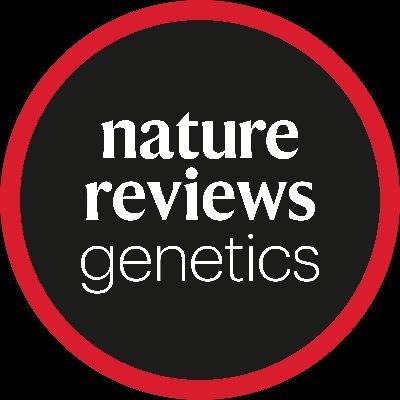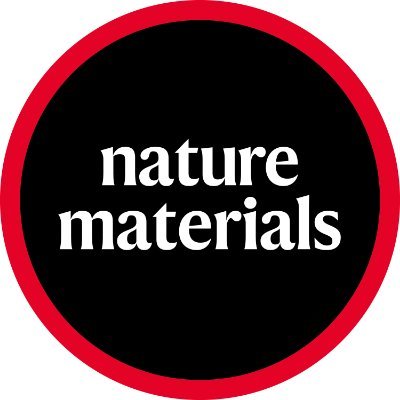
Josh Brickman
@josh_brickman
Followers
3K
Following
2K
Media
163
Statuses
2K
Developmental and Stem Cell Biologist, Interested in the transcription, lineage specification, potency and plasticity. @josh-brickman.bsky.social
Copenhagen
Joined January 2014
How does metabolism act through generic chromatin modifiers promote specific cellular states? Simultaneous modification of transcription factors and chromatin, enhancing epigenetic signal to noise ratios. https://t.co/SUx8ZninUo
embopress.org
imageimageHow alterations in cell metabolism translate into specific developmental gene programs remains a major question. This study shows that forcing OXPHOS metabolism reprograms mouse embryonic...
2
13
39
It wouldn't be 11. For transcription, all the other processes (translation, splicing etc) are on 10, on 10, etc…where do they go? For enhancers, everything on 10, the transcription factors deacetylate and go one
0
0
0
Why combat aging with enhancers at 11? Why not just make 10 louder? https://t.co/Q7a1Os4C8H
embopress.org
1
0
2
Happy to share our new review!
To launch the collection, our review "The regulation and function of post-transcriptional RNA splicing" by Karine Choquet, @inespatop & Stirling Churchman @fiddle ( https://t.co/flccIt1ZnI) will be free for 1 month
0
4
23
Here is a great joke. Thursday May 22nd , 1pm . Lab meeting. A scientists gives a 30 minute pep talk that boils down to “ guys I know things are bad, we had to let some people go, our grands are terminated , our awards are denied. BUT the great news is this is AS BAD as it gets !
13
24
261
The latest piece of @mproksik PhD, for step in our nf-core saga, and a new MARS-seq pipeline. Check it out at
academic.oup.com
AbstractMotivation. Single sequencing technology (scRNA-seq) enables the study of gene regulation at a single cell level. Although many sc-RNA-seq protocol
0
0
2
Very happy that the work of @Alboo recognized in this collection. It was an amazing PhD and her paper included here - https://t.co/1TBliqnLug - only a part of it....
cell.com
Brickman and colleagues show that an unsegregated ICM-like population arises spontaneously in naive ESC culture in KOSR media. These cells resemble the E3.5 ICM and can contribute to both epiblast...
The Stem Cell Reports Best Of 2024-2025 issue is out now! Read the full issue to explore the most notable papers published over the last year. https://t.co/hO2RPMEkhE
@ISSCR @CellPressNews @GairdnerAwards @SickKidsNews
0
0
5
Incredible achievement for old school developmental biology interfacing with the translational world! Congratulations to Melissa - very well deserved!
reNEW CEO named Fellow of the Royal Society Professor Melissa H. Little, reNEW’s CEO, has been appointed Fellow of the Royal Society. Fellows of the Royal Society are many of the world's most eminent scientists, engineers and technologists. Founded in 1660 and based in London,
0
0
8
Metabolism driving the exit from pluripotency into mature trophoblast - beautiful work from my colleague @JZylicz
Can metabolism regulate more than bioenergetics during human development? Our new study says YES! We show that metabolism influences cell fate choice in human naïve pluripotent stem cells, histone acetylation, and trophectoderm maturation. https://t.co/5Ms6tNyT5l
@NatureCellBio
0
1
6
This enhanced or deteriorating ratio of epigenetic signals may also underpin aging. Amazing work by Robert Bone @alboo87 , @molly_lowndes and Collaborators @treebak and Michael Nielsen, all of @LabBrickman in @reNEW_Global @UCPH_health
0
0
4
Imagine you take your grandparents to a crowded restaurant, they complain they can’t hear you both because you aren’t speaking loud enough, and that there is too much noise.
2
0
1
SIRT1 in turn, turns up the signal to noise ratios at the level of enhancer regulation, with 14K enhancers become 4K very effective enhancers.
1
0
1
Super ESCs, rejuvenated ESCs, enhanced lipid metabolism leads to elevated NAD and activated SIRT1
1
0
1
Essentially, we tried giving cells their own variation on Ozempic…Galactose. In the case of ESCs, we bypass the brain and substitute galactose for glucose the media…they become super stem cells.
1
0
2
Shifting the pitch and contours of Waddington’s valleys, putative enhancers, and transcription through H3K27me3 chromatin in the endoderm. Find it all here: https://t.co/3VUYiyOFlo. Fantastic collaboration with @josh_brickman and @wendy_bickmore. Well done Jurriaan and @djmbio.
journals.plos.org
Author summary Embryogenesis requires a tightly coordinated programme of cellular expansion and specialisation to gives rise to all of the cell- and tissue-types of the developing organism. In...
3
13
59
Why thank you Katie!
H3K27me3 supports endodermal differentiation "PRC factors both restrain exit from the desired trajectory by canalizing gene expression programmes and control the incline upon which a cell tracks towards a new state." Nice work! @josh_brickman @RobertIllingwo7 @wendy_bickmore
0
0
3
0
0
1
Transcription ahead of chromatin regulation? Activation in endoderm occurs prior to K27me3 removal, plus much more. A tribute to our collaborations with @wendy_bickmore and @RobertIllingwo7, who worked tirelessly to insure this data saw daylight! https://t.co/cS2fJWbdYr
journals.plos.org
Author summary Embryogenesis requires a tightly coordinated programme of cellular expansion and specialisation to gives rise to all of the cell- and tissue-types of the developing organism. In...
1
9
96
Electric fields guide collective cell migration in developing embryos of Xenopus laevis via a voltage-sensitive phosphatase. @Mech_Morph_Lab
https://t.co/aF7yNbmQnn
nature.com
Nature Materials - Electric fields guide collective cell migration in developing embryos of Xenopus laevis via a voltage-sensitive phosphatase.
1
12
51
In the next few weeks we will start advertising for PhD students and/or post docs. We are looking for two people to join our group, one focused in pancreatic organoids and the other to join our computational team. DM if you are interested!
11
50
190















